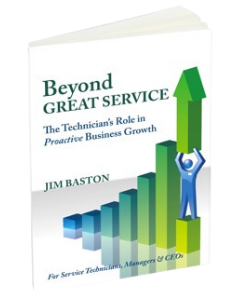Show You Care – Write Emails That Are SMART

Written communication plays a significant role in conveying our professionalism and our value to our customers. Correspondence that is well written reveals our knowledge and professionalism and provides reassurance to the receiver. It also shows we care. If you want to show your customers you care, write emails that are SMART.
Emails are probably the most common form of written communication in business today. Email correspondence is extremely convenient and can provide tremendous value in communicating ideas quickly and easily. Because of this convenience, however, we often take a casual approach to writing emails and, as a result, may be transmitting an image of ourselves which is neither professional nor reassuring.
Several years ago, a client of mine received an email reply to an on-line ad he placed in search of an agent to represent his company. He shared a particular reply with me that stood out in terms of what it communicated about the writer. Among other things, the email had poor sentence structure, did not use capitalization and had numerous spelling mistakes. I use this email in my workshops to show how much information (or misinformation) is actually transmitted about us through the quality of the emails that we write. After reading the email, I ask attendees to imagine the person who wrote it. I ask them to describe their impression about the person’s education level, their professionalism, their amount of self-motivation and even the way they might dress. It is fascinating to hear how much people assume about others from a few simple lines of text.
On a practical side, emails are an important business record. They communicate information and become critical input if there is ever a dispute. A carelessly worded email can damage a company’s relationship with a customer and in extreme cases even damage their reputation.
There is lots of good information available on-line about email etiquette and the do’s and don’ts, so I am not going to repeat that here. However, I would like to share with you an acronym that I use to help write emails that stand out and consistently communicate professionalism and value.
I call them SMART emails:
S – Subject Line: Write a meaningful subject line. They are a primary resource to determine if the receiver(s) will read our emails now, later or never and the first opportunity for us to make a positive impression. Blank or vague subject lines risk the email being overlooked.
M – Message: Keep the message focused. The body of an email must be clear and concise and consistent with the subject line. Include a salutation (it shows courtesy). Keep sentences short and to the point. Be polite and check your grammar and punctuation. Sign off with your name and contact information.
A – Action: Be clear on what you want the recipient to DO. Our emails should have a purpose. What is the purpose of your email? What do you want to happen as a result of your email being read? Indicate clearly what you want the receiver to do.
R – Response: Clearly indicate whether a response is required and, if so, how you would like the response to be provided.
T – Time Line: Communicate the time line for the response or action requested in your email. For example, you could complete the above request so it becomes: “Please reply by return email by Monday, April 11th”
Well written emails seem to be becoming rarer in today’s fast paced business environment. This provides us with an opportunity to stand out from the crowd and convey our professionalism and competency. Show you care. Write emails that are SMART.
As always, I welcome your comments and questions. You can connect with me via telephone or email or leave a comment right here on the site. And as always, please feel free to leave a link back to your own blog if you have one via the commentluv feature here on the site. If you are reading this blog post via email, you will need to locate this post on my website by clicking here. Scroll down to the bottom of the page where you will find the comment section.
Jim Baston
“For email, the old postcard rule applies. Nobody else is supposed to read
your postcards, but you’d be a fool if you wrote anything private on one.”
– Judith Martin




Leave a Reply
Want to join the discussion?Feel free to contribute!